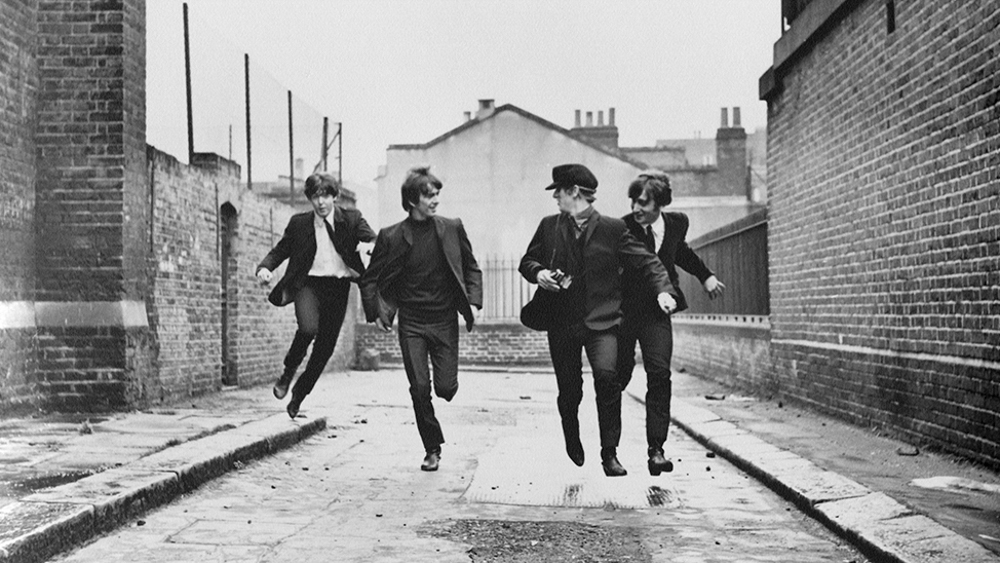Let It Be Beatles
Fab Four Film Series Beatles Revolutions Comes to UCSB’s Carsey-Wolf Center

Musically, the Beatles managed the unparalleled feat of both crystallizing and redefining music over the course of its decade as a band. Their discography is a jukebox of infectious pop music blended with freewheeling experimental and eclectic impulses, especially heard from their 1967 Sgt. Pepper’s Lonely Hearts Club Band to 1969’s Abbey Road. They wanted to change the music world while also embracing its traditional values.
On a humbler level, the Beatles’ cinematic legacy has achieved a similar balance of emotionality and envelope-pushing audacity. As such, their cinematic oeuvre is the subject of an enticing free-to-the-public film series at UCSB’s Carsey-Wolf Center, Beatles Revolutions. The series spans a course of five films made during and after the Beatles’ life as a band and features special guest speakers, including Beatles engineer Alan Parsons and famed rock critic Greil Marcus.
The screenings are as follows: A Hard Day’s Night, with biographer Ivor Davis (January 17); Let It Be, with that album’s engineer — and Santa Barbaran — Alan Parsons (January 2); Robert Zemeckis’s (also a local) I Wanna Hold Your Hand, with actress Nancy Allen and co-writer Bob Gale (February 12); Julie Taymor’s romantic psychedelia film Across the Universe, with rock critic Marcus (February 27); and Yellow Submarine, with artist/writer Bill Morrison (March 2).
Carsey-Wolf director Patrice Petro explained that the Beatles’ film culture makes for a ripe topic for their ongoing film series — which in the past has offered up film-discussions on the German-Hollywood connection (with iconic director Werner Herzog in the house), Women in Comedy, and Shakespeare. In this case, the goal is “to explore the Beatles’ music and its impact on filmmaking and culture more generally,” she said. “This is not an exercise in fandom or hagiography, but an effort to take a long, serious, and thoughtful look at the Beatles and their legacy for our own time.”
Director Richard Lester’s 1964 mockumentary-meets-romp A Hard Day’s Night is a fine place to start the series and survey, as it is an early example of how the Beatles were open to stretching into new conceptual areas, in and beyond popular culture. As Petro said, the film “captures the energy and movement of the era through its music but also through its style and surreal humor.”
More than four decades of Beatlemania is accounted for between the quirky 1964 classic and Taymor’s 2007 cinematic sensory tapestry. “We wanted to include classic Beatles films,” she continued, “but also include Across the Universe, which aims to recast the Beatles’ music and history for contemporary audiences.”
More generally, the ongoing series in the university’s Pollock Theater has expanded the range of cinematic options in the area. Guests and post-screening discussions are an important part of the equation. “We always strive to invite a range of guests to explore the films from multiple angles,” said Petro. “We were extremely lucky to secure the participation of Alan Parsons and others. This is often the hardest part of putting these series together — finding the right guest, and securing their participation, is often a very long and arduous process, and, as you might imagine, who we invite shapes the kind of event we offer.”
Next up on the Carsey-Wolf Center agenda is a film series on New Wave, a cinematic movement defined by radical experimentation that emerged in the 1950s and ’60s. The list includes several movies from the famous French Nouvelle Vague, but also extends beyond into similar movements in Cuba, China, and Iran, with the 2011’s This Is Not a Film. Also on tap is New Wave’s historical precursor, Roberto Rossellini’s 1946 Rome, Open City.
See carseywolf.ucsb.edu.



